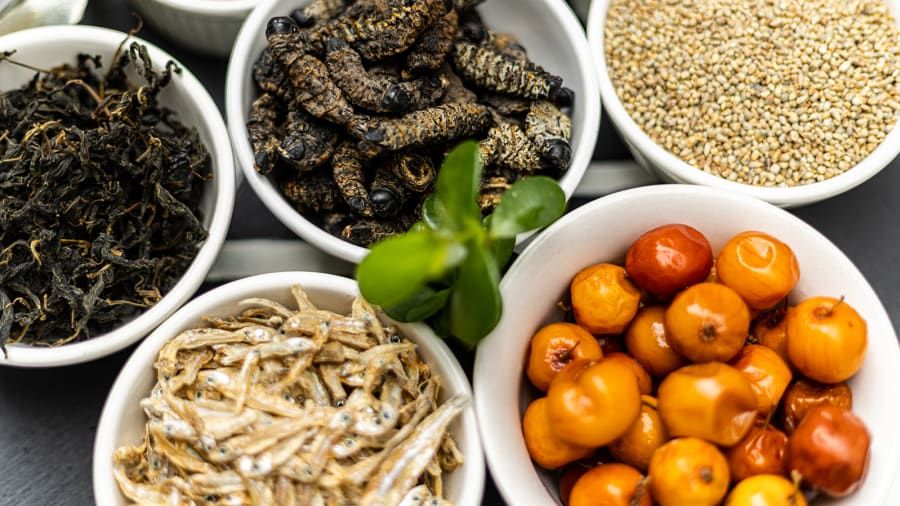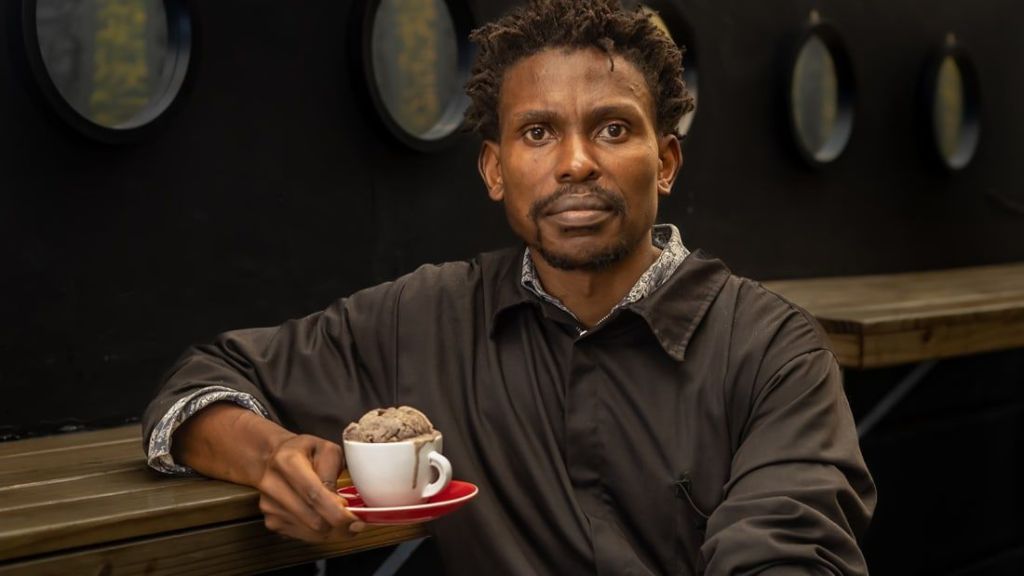Squeezed between a second-hand bookstore and a record store in Cape Town’s charmingly grimy suburb of Observatory is a blackboard that reads “Tapi Tapi – authentic, artisanal African ice cream”.
The salon has become one of the most talked about food establishments in cape town since opening in October 2020. And in his tiny kitchen, the Zimbabwean molecular biologist, Tapiwa Guzha is creating ice cream flavors like no one else.
Among the suggestions of the day, marked on the bright kitchen counter, are:
Salted kapenta dried fish, caramel and caribbean red pepper
Sun-dried blackjack leaves and caramel
malted corn
Hibiscus, Clove and Anise
Using only indigenous flavors from the African continent, Guzha’s ice cream has become the tool through which he is reframing the narrative around African food.
“This (is) ice cream for my identity, for the sake of other people,” Guzha told CNN .
“I think the (global) food story doesn’t have much room for Africa… Unless we’re looking at the generic idea of African food,” he adds. “I’m not trying to appeal to the global universe – I’m trying to help black identities enjoy their culture more regularly.”
The ingredients
Guzha uses ingredients and flavors to represent all regions of the continent, going beyond popular cuisines like Ethiopian or Nigerian, he says.
He takes inspiration from everywhere – a conversation, a smell, a meal, a longing for the ocean. Foraging and even searching Google play a role in this process. “You have to search and search and search until you find some kind of truth,” he says.
Walking around his ice cream shop, the ingredients he’s going to play with today are spread out like a feast. Red millet, found across the continent (“earthy and nutty,” he says). West African sun-dried green peas and a legume called tiger nut.

From East, Central and Southern Africa there is sun-dried and salt-cured kapenta fish, known as Matemba (“moderate, salty fish flavor”).
From Southern Africa, he chose dried mopane caterpillars, a local favorite (“chewy, crispy and nutty”).
All of this will soon turn into ice cream flavors that are sure to surprise, shock, delight diners.
“I don’t really have the traditional idea of flavor combinations,” he explains. “I do what I like and see what comes out. So I can literally combine any of them with whatever I want.”
Another ingredient he likes to play with is Mphepho, an herb used in traditional Southern African medicine that is believed to channel the spirit world. But Guzha argues that it has much more purpose, and by creating an ice cream from it, he hopes to expand people’s understanding of this most sacred plant.
“That’s one of the problems we’re trying to solve,” he says. “People are so unaware of their own cultural practices. I’m not saying I’m an expert…but we can certainly help people realize a lot more about themselves.”
There was a reaction, says Guzha: “Something like that really shakes people up… questioning exactly what you’re trying to do with their culture. I’m not asking for permission. You don’t have to be an observer of your culture; you can be a participant in it. And people often forget that they are actually allowed to contribute to their culture, their journey and knowledge systems.”
But while the ingredients may have ancient roots, Tapi Tapi’s menu isn’t dwelling on the past. Despite having created more than 800 flavors, he says, no flavor is repeated.
“It’s deliberate, because we’re not trying to compete against other cultures,” adds Guzha. “That defeats the whole point of what I’m trying to do here.”
The recipe

But how does a postdoctoral molecular biologist become the founder of one of Cape Town’s most famous ice cream parlors?
By chance, says Guzha. It all started when he was watching a cooking show where they used dry ice to make ice cream. As a scientist, he has access to the substance, so he began experimenting with it at home. Other people found it intriguing – “especially as a black person, to say you make ice cream is even more outrageous,” he says with a laugh.
Guzha describes himself as a “scientist with a curious mind”. For him, the two hats he wears represent different parts of his identity.
But the turning point came when he realized that ice cream has the power to transport people home; to offer something magical and nostalgic – especially for its black clientele.
“(If I’m talking to) another black person, it’s, ‘Hey, I didn’t know I could do this with my culture or my identity.’ They come out knowing a little more about themselves,” he says. “And maybe looking forward to exploring their identity again and coming home and reconnecting with some part of their tribal origins.”
Source: CNN Brasil







